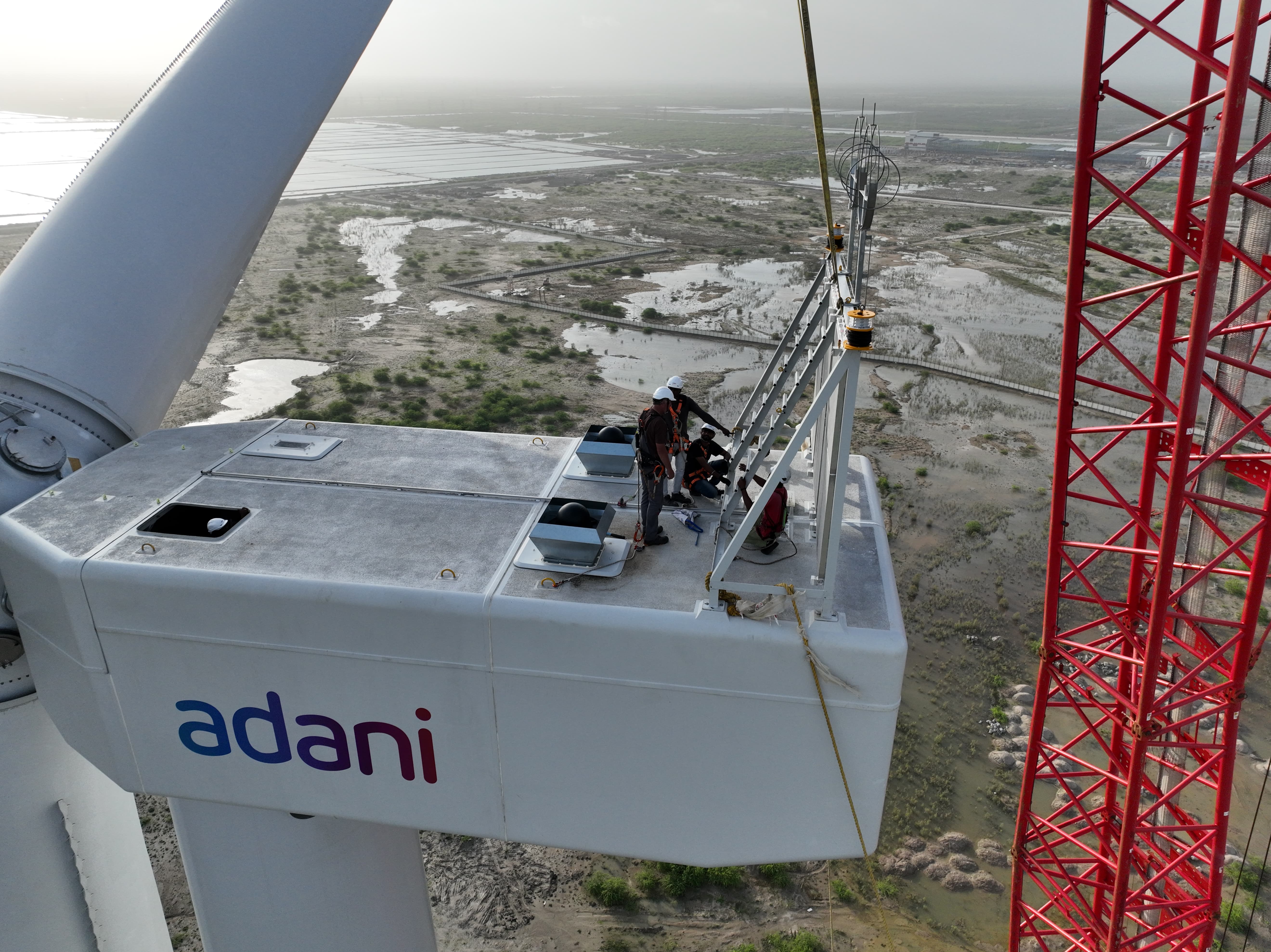
The Indian conglomerate Adani Green Energy has withdrawn from its US$442 million wind power projects in Sri Lanka, following the new government’s push to renegotiate energy tariffs and a broader review of Adani’s investments in the country.
Adani Green Energy, a subsidiary of the Adani Group, had been set to develop two wind power projects in Mannar and Pooneryn, both in the Tamil homeland, as part of a $1 billion investment in energy and transmission infrastructure on the island.
However, the company announced its withdrawal after Colombo signalled its intention to reduce electricity costs from $0.08 per kilowatt-hour (kWh) to $0.06 or lower.
In a letter to Sri Lanka’s Board of Investment (BOI), Adani Green Energy stated:
“It was learned that another Cabinet-appointed negotiation committee and project committee would be constituted to renegotiate the project proposal. This aspect was deliberated at the Board of our company, and it was decided that while the company fully respects the sovereign rights of Sri Lanka and its choices, it would respectfully withdraw.”
Adani justified its withdrawal by citing financial unviability. The move comes amid growing scrutiny of the conglomerate’s global energy deals, particularly after US authorities accused Adani executives in November 2024 of involvement in a bribery scheme related to Indian power supply contracts. The company has denied all allegations, but the controversy has prompted governments in Sri Lanka and Bangladesh to re-examine Adani’s energy agreements.
The Sri Lankan government under Anura Kumara Dissanayake reportedly initiated a review of Adani’s energy projects, including its wind power and transmission projects. The government had raised concerns that the previously agreed tariff of $0.0826 per kWh was too high and sought a lower rate. Dissayanake’s left-wing party had previously further anti-Indian sentiment amongst the Sinhala south, but has sought to expand relations since taking office last year.
The power purchase agreement (PPA) for Adani’s wind power plants was originally signed under former interim president Ranil Wickremesinghe in May 2024, but faced criticism from activists and energy experts.
During his election campaign, Dissanayake pledged to review all major energy deals, including Adani’s wind farms. A Supreme Court case challenging the environmental impact of the Mannar wind farm and opposition from local communities also played a role in delaying the project’s progress.
The company had spent about $5mn on “pre-development activities” for the two wind farms. “With the exception of Mannar Environmental approval & an associated Supreme Court case, we have procured almost all clearances,” Adani said.
Despite pulling out of the wind energy sector, Adani continues to invest in Sri Lanka, particularly in Colombo’s largest port project. The conglomerate is constructing a US$700 million West Container Terminal (WCT) at the Port of Colombo, although its planned $500 million loan from the US International Development Finance Corporation (DFC) was cancelled in December 2024.
Sri Lanka, which suffered crippling power blackouts and fuel shortages during a 2022 economic crisis, has been pushing for a transition to renewable energy to reduce its dependence on costly imported fuel.
The Dissanayake administration has indicated that talks are ongoing with other energy firms, and a new procurement framework will be introduced to ensure transparency and better pricing for future projects.
“Our focus is on ensuring energy security at the most affordable price for Sri Lankans,” a government spokesperson stated, confirming that alternative investors were being sought for the Mannar and Pooneryn wind projects.
Read more from Al Jazeera here, Reuters here and the Financial Times here.
